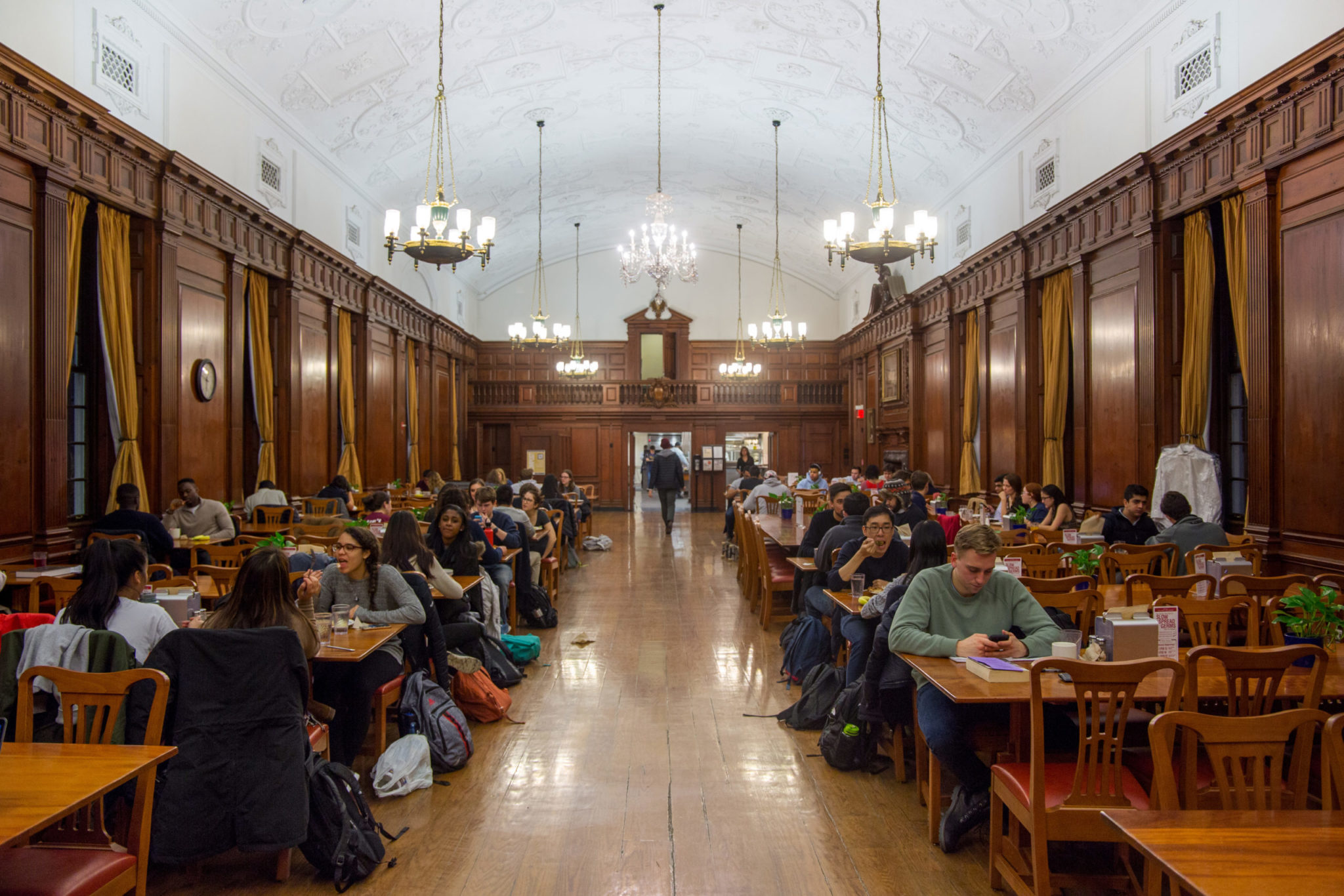
Lucas Holter
Spa water may be a regular target of jokes among Yalies in the Facebook group “Yale Memes for Special Snowflake Teens” and beyond, but Yale Hospitality continues to tout its positive benefits.
The spa water program — described by Yale Hospitality’s website as water “infused with fresh fruit” — began in the Commons dining hall 12 years ago and first became available in residential college dining halls in 2013. Since then, sugary beverage consumption has decreased 35 percent, according to Yale Hospitality Communications Manager Melissa Roberts. Spa water’s first full year in residential dining halls — in the 2013–14 school year — accounted for much of that decrease, landing at a 28 percent reduction in sugary beverage consumption. While there could be other factors that contributed to the drop, Yale Hospitality administrators believe the introduction of spa water played a large role in the reduction.
“Offering spa water aligns with Hospitality’s ‘better for you’ approach to dining,” wrote Roberts in an email to the News. “Having healthier options available for our students and guests is intended to help direct positive lifestyle choices and changes in diet towards overall good health.”
In January, Yale Hospitality awarded Timothy Dwight College with a recognition for reducing sugary beverage consumption by 41 percent over the previous year. Rose Colon — the employee responsible for the spa water’s presentation — received special recognition.
According to Yale Hospitality’s website, spa water is an essential component of the organization’s sugar reduction program. It enthusiastically adds that spa water “refreshes, boosts energy, helps maintain good health, and tastes great!”
Roberts said that sugary beverage consumption — the category that Yale Hospitality tracked — only includes drinks with sugar and therefore excludes seltzers and diet sodas. Roberts added that Yale Hospitality also monitors the use of animal proteins, seafood, legumes, grains and produce, and makes adjustments “accordingly.”
Allison Arnett, Yale Hospitality wellness manager and dietitian, pointed to CDC data stating that, on average, U.S. youth consume 143 calories daily from “sugar-sweetened beverages.” More broadly, sugar-sweetened beverages are one of the primary sources of added sugar in American diets. According to the CDC, regular consumption of sodas is linked to a variety of negative health effects, including obesity, heart disease, tooth decay and gout.
“The students have options but are selecting this based upon preference or desire for less sugar-sweetened drinks,” Arnett wrote. “The water is beautifully presented across campus and a great source of pride for our team members who are responsible for the daily presentation.”
As the spa water program predates Arnett’s tenure with Yale Hospitality, she credited Director of Sustainability and Supply Management Gerry Remer for its initial implementation.
John Lignelli ’23, an avid spa water consumer, told the News that he agrees with Yale Hospitality’s characterization of the beverage.
“I think it’s kinda dually healthy for you in that you’re drinking water, and you’re also getting whatever kinds of antioxidants and vitamins are in the water due to the fruits they put in it,” he said.
While Lignelli added he would “probably go for water anyway” over a sugary beverage from the soda fountain, he said he chooses spa water instead of regular water because he appreciates its taste.
Lignelli noted that the spa water’s set-up can make a large difference in his choice to drink it. For example, he said that he values the placement of additional cups next to the spa water in Berkeley College. He has recently noticed a lack of cups next to the spa water in Davenport College — over the last two to three weeks — which he believes might disincentivize possible spa water drinkers.
Each college makes different decisions regarding the location and setup of its spa water installation, particularly depending on spatial restraints. For example, Davenport locates spa water inside the servery, whereas Berkeley places it near the entrance to the food area.
Yale Dining serves over 14,000 meals each day.
Ako Ndefo-Haven | ako.ndefo-haven@yale.edu







